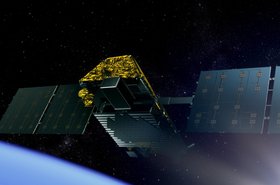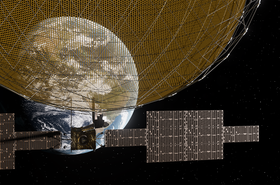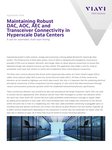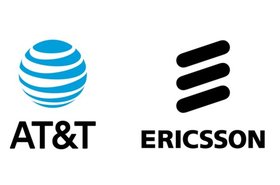SpaceX has reiterated its warnings that plans to use a part of Ku-band for 5G networks in the United States could disrupt Starlink broadband services.
The company cited analysis from engineering consulting firm Savid LLC which says the impact on Starlink's services could be greater than first anticipated.
Starlink, which is a subsidiary of Elon Musk's SpaceX, has long warned that satellite broadcaster Dish's proposal to use 5G in the 12GHz band would impact its users' experiences.
The latest report backs up its in-house report back in June that warned its Starlink services would be "unusable" for most Americans if a 5G high-power mobile service is allowed to operate across the country.
In its June report, SpaceX claimed that Starlink users would experience harmful interference 77 percent of the time, and suffer total outage of services 74 percent of the time.
Satellite operator OneWeb shared a similar view at the time, writing to the Federal Communications Commission (FCC) in an attempt to persuade the regulator to reject applications from Dish Network and spectrum holder RS Access, backed by billionaire Michael Dell, to run two-way mobile services in the band. American cable TV provider Directv has also expressed concerns.
12GHz band tussle
Starlink uses a spectrum in the 12GHz band to connect its satellites in non-geostationary orbit (NGSO) to user terminals. However, Dish Network also uses frequencies in the band, as it provides linear TV programming.
Dish is looking to get permission from the FCC to upgrade its license so that it can provide terrestrial 5G services. This has led SpaceX to hit out at these plans, noting that operating at 12GHz will impact its Starlink services.
SpaceX has previously refuted an RKF study commissioned by RS Access, notes Fierce Wireless, which concluded that at least 99.85 percent of Starlink terminals would experience no interference in the 12.2-12.7 GHz band.
In a letter to the FCC, SpaceX senior director of policy David Goldman cited Savid's findings: "In fact, Savid's analysis “revealed some conservative assumptions” in SpaceX’s study, concluding that not only was SpaceX’s study more accurate than the submission by RKF but that SpaceX may have underestimated the likelihood of interference and potential harm to Starlink services," wrote Goldman.
In his letter he accuses Dish of "repeatedly moving the goalposts", and that Dish is contradicting its justifications for what he calls a "spectrum grab".
He also outlines that the RKF assumption that Dish would use only low power levels was inconsistent with Dish's own Network 5G Buildout Report which “clearly indicates that Dish’s terrestrial mobile systems will tend to maximize” base station transmission power.
"The record is definitive that unavoidable interference caused by high-power transmitters in the 12 GHz band would be devastating for millions of American consumers who depend on the satellite services in the band. Savid’s technical conclusions validate SpaceX’s study and expose how RKF severely underestimates interference to Starlink customers."
Dish hits back
Unsurprisingly Dish has hit back at objections made by SpaceX, calling the company's claims "exaggerated".
“It is no surprise that yesterday’s filing from SpaceX includes a flawed technical analysis that purports – unsuccessfully – to rebut the multiple studies submitted to the FCC from the best experts in the field that have concluded that co-existence is eminently possible.”
Dish called SpaceX's earlier study "scientifically and logically flawed", while the 5G for 12GHz Coalition, which is made up of telcos, public interest groups, and trade associations, backed the RKF's report.
In a scathing statement in July, the coalition accused Starlink of spreading misinformation.
"In addition to this manipulated filing, Starlink has initiated a public misinformation campaign by falsely telling customers and the public that coexistence is not possible in the band among Starlink and 5G services—despite nationwide data proving otherwise."
“This tactic, which is commonly used by [SpaceX Chief Executive Officer] Elon Musk, is not only disingenuous, but it promulgates an anti-5G narrative that is harmful to American consumers who deserve greater competition, connectivity options, and innovation.
"It also stands to threaten America’s global leadership in the 5G and technology sector as other countries outpace the nation in delivering next-generation services.”
Earlier this year SpaceX asked the FCC to allow it to operate a new mobile service in the 2GHz frequency band, according to Extreme Tech. However, this band is currently licensed to Dish, adding fuel to already tense relations.






